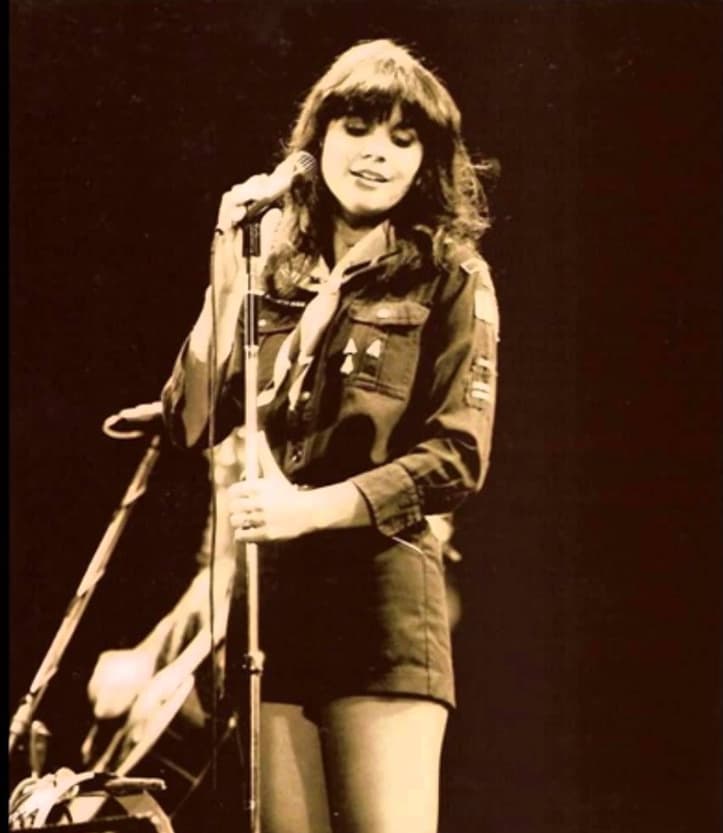
A Ballad of Broken Dreams and Lingering Hope: Remembering Linda Ronstadt’s “Desperado”
“Desperado,” a poignant plea for love and connection, captures the bittersweet ache of loneliness and the hesitant yearning for redemption. Reaching number 15 on the Billboard Hot 100 in 1975, this enduring classic from Linda Ronstadt’s album, “Heart Like a Wheel,” wasn’t just a hit; it became an anthem for a generation grappling with change, uncertainty, and the quiet desperation of the heart. It’s a song that whispers to the solitary souls, the ones who’ve built walls around themselves, reminding them of the possibility, however faint, of love and belonging.
Ronstadt, with her crystalline voice and uncanny ability to inhabit a song’s emotional core, didn’t just sing “Desperado”—she embodied it. She gave voice to the restless spirit of the titular character, a wandering soul caught between the allure of freedom and the gnawing ache of isolation. The song, penned by Glenn Frey and Don Henley of the Eagles, wasn’t originally intended for Ronstadt. It was, in fact, the title track of the Eagles’ 1973 album, “Desperado,” a concept album weaving a narrative around a fictional outlaw gang in the Wild West. While the Eagles’ version had a certain rugged, almost cinematic quality, Ronstadt’s rendition brought a softer, more vulnerable dimension to the story. She transformed the desperado from a symbol of rebellious defiance into a figure of poignant loneliness, a heart yearning for connection amidst the vast emptiness.
The beauty of “Desperado” lies in its layered meaning. On the surface, it’s a simple love song, a plea for a lover to let go of their guarded independence and embrace the warmth of companionship. “Why don’t you come to your senses?” Ronstadt implores, her voice laced with both tenderness and a touch of exasperation. But beneath the surface, the song delves into deeper themes of self-discovery, the struggle between freedom and commitment, and the fear of vulnerability. The desperado, much like many of us at certain points in our lives, is afraid to let go of the familiar comfort of solitude, even when it leads to a profound sense of emptiness. He’s built a fortress around his heart, believing it’s safer to be alone than to risk the pain of love and loss.
Ronstadt’s interpretation resonated deeply with audiences because she understood the nuances of these emotions. She wasn’t just singing about a fictional character; she was tapping into the universal human experience of longing, the desire for connection that exists within even the most fiercely independent spirits. “Desperado” became more than just a song; it became a shared experience, a collective sigh of recognition for those who had felt the sting of loneliness and the hesitant flicker of hope for something more. It’s a song that speaks to the heart of anyone who has ever felt the push and pull between the desire for freedom and the yearning for love.
Thinking back to the mid-70s, a time of social and cultural upheaval, “Desperado” seemed to capture the zeitgeist. It was a period of transition, a time when traditional values were being questioned and individuals were searching for their place in a rapidly changing world. The song’s themes of isolation, longing, and the search for meaning resonated with a generation grappling with similar uncertainties. It became a soundtrack for those navigating the complexities of love, loss, and the search for self. And even today, decades later, “Desperado” continues to touch a nerve, its message of hope and vulnerability as relevant as ever. It’s a timeless ballad, a reminder that even the most hardened hearts can be softened by love, and that the courage to open oneself up to connection is ultimately the path to true fulfillment. It’s a song that stays with you, a melancholic melody that echoes the quiet longings of the human heart.